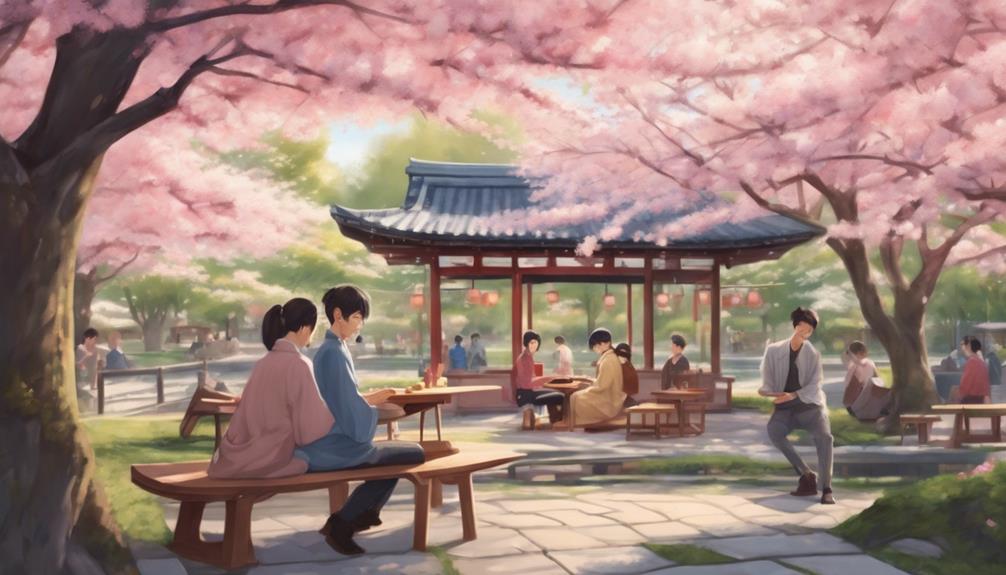As we look out onto the busy streets of Tokyo, it is clear that a silent revolution is underway, defying traditional views on family and happiness.
The decision to lead a childfree life in Japan is gaining traction, with a myriad of reasons driving individuals to opt out of parenthood.
But what are the implications of this societal shift, and how is Japan adapting to this changing landscape?
Let's explore the complexities and nuances of embracing the childfree lifestyle in a country known for its strong emphasis on tradition and familial ties.
Key Takeaways
- Growing acceptance of childfree choice reflects evolving societal expectations.
- Factors like high living costs and career focus influence childfree decisions.
- Childlessness challenges traditional norms, reshaping family dynamics in Japan.
- Embracing personal fulfillment over parenthood redefines success and societal norms.
Changing Perspectives on Parenthood
Changing societal norms in Japan have led to a growing acceptance of the childfree lifestyle. Demographic trends show a significant increase in the number of Japanese women choosing to remain childless, shifting the perception of childlessness as a valid lifestyle choice. Factors such as population aging, declining birth rates, and a focus on individual fulfillment are influencing this decision. More Japanese adults are embracing the childfree lifestyle as a showcase of the future, reflecting a changing landscape where societal expectations around marriage and parenthood are evolving.
This shift allows for greater freedom in personal choices, with the acceptance and normalization of childlessness in Japanese society signifying a departure from traditional norms. It indicates a broader acceptance of diverse consumer practices and life paths. This trend highlights a fundamental change in how parenthood is perceived, emphasizing the importance of personal agency and autonomy in shaping one's life journey.
Factors Influencing Childfree Choices

Frequently, the high cost of living in urban areas like Tokyo dissuades young couples from choosing to have children. As we navigate the landscape of childfree choices in Japan, several factors come into play:
- Shifting Cultural Attitudes: Japanese women are increasingly prioritizing career advancement and personal fulfillment over traditional family roles, challenging societal norms.
- Limited Support for Working Parents: The lack of adequate support for working parents, such as long working hours and insufficient childcare options, influences many to opt for a childfree lifestyle.
- Changing Social Expectations: Evolving social norms in Japan are redefining the traditional expectations of parenthood, allowing individuals to explore childlessness as a viable lifestyle choice.
These dynamics intersect with broader demographic trends, including population aging and declining fertility rates, shaping Japan's unique consumer practices within the context of wealthy nations.
As we delve deeper into the reasons behind embracing a childfree lifestyle, it becomes evident that various economic, social, and cultural factors are steering individuals towards reimagining the concept of family and fulfillment.
Social Stigma Surrounding Childlessness
Shifting societal norms in Japan challenge ingrained expectations of parenthood, particularly surrounding the social stigma attached to childlessness. The pressure to conform to traditional family structures in Japan often results in judgment and discrimination against those who opt for a childfree lifestyle. Historical values emphasizing the significance of family and lineage contribute to the stigma surrounding childlessness, creating societal expectations that can be difficult to navigate. However, the gradual shift towards individualism is challenging these norms, allowing more individuals to embrace the decision to remain childfree. Despite the lingering stigma, there is a notable trend in Japan where people prioritize personal fulfillment over adhering to traditional family roles, reflecting a changing perspective within the population.
| Keywords | Description |
|---|---|
| Japan | Country where societal norms impact attitudes towards childlessness. |
| Social Stigma | Negative perceptions attached to those who choose not to have children. |
| Traditional Family Structures | Expectations linked to established family dynamics in Japanese society. |
| Individualism | Ideology that values personal independence and choice over societal pressures. |
Impact on Japanese Society

Influencing various aspects of Japanese society, the choice to lead a childfree lifestyle is reshaping traditional family dynamics and societal expectations. As Japan grapples with population aging and declining birth rates, the acceptance of childlessness as a valid lifestyle is altering the social fabric in significant ways.
- Demographic Trends: The rise in childlessness is contributing to a demographic shift in Japan, impacting everything from consumer patterns to healthcare needs.
- Economic Growth: The global strategy consulting group has highlighted how the choice to remain childfree can influence long-term economic growth prospects in Japan.
- Future Societal Expectations: Embracing childlessness today is redefining what the future of Japanese society may look like, challenging ingrained beliefs about family structures and individual fulfillment.
These shifts in societal norms and expectations are crucial as Japan navigates the complexities of an aging population and changing dynamics within its workforce and communities.
Embracing Personal Fulfillment
Embracing personal fulfillment through the childfree lifestyle in Japan involves prioritizing self-fulfillment and alternative sources of happiness.
In a global context of demographic trends like population aging and falling birth rates, Japan stands out as a nation where individuals are redefining success beyond parenthood. This shift challenges traditional societal norms and expectations, allowing for a focus on individualism and personal autonomy.
Within wealthy nations like Japan, where consumer practices often revolve around family structures, choosing a childfree life can be a bold statement. It signifies a departure from the norm, emphasizing self-expression and the pursuit of personal passions.
Frequently Asked Questions
What Is the Childlessness Rate in Japan?
We're seeing around 1 in 4 Japanese women remaining childless, reflecting a significant societal shift.
Approximately 30% of Japanese women in their early 50s are childless as of 2022.
Japan's declining birth rates have contributed to this rise, challenging traditional family structures.
Factors like delayed marriages, career-focused lifestyles, and economic pressures play a role in this trend.
What Country Has the Most Childless Couples?
We're not sure about the country with the most childless couples, but it's interesting to see this trend worldwide.
It's a shift that challenges traditional norms and offers different perspectives on family life.
The reasons behind this choice can vary, from economic pressures to personal preferences.
It's a reminder of how diverse our paths to happiness can be, and we should respect everyone's choices in this matter.
Is It Good to Raise a Child in Japan?
Raising a child in Japan has its challenges. Financial pressures and societal expectations can make it tough. However, the country offers excellent education and safety.
Families navigate a delicate balance between work and family life. It's crucial to consider these factors when deciding to have children in Japan.
What Are Some Common Challenges of Embracing the Childfree Lifestyle, as Discussed by Marcela Munoz?
Embracing the childfree lifestyle can come with various challenges, as discussed by Marcela Munoz. These may include societal pressure to conform, judgment from family and friends, and a lack of understanding from others. Munoz highlights the need for support and community for those who choose this path.
Conclusion
As we reflect on the changing landscape of parenthood in Japan, we can see a blossoming of personal freedom and fulfillment.
The theory that embracing the childfree lifestyle leads to a more balanced and fulfilling life is evident in the vibrant colors of individual choice and happiness.
Let's continue to support and respect each other's decisions, creating a society where personal fulfillment is celebrated above all else.









